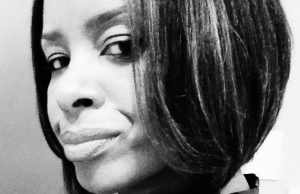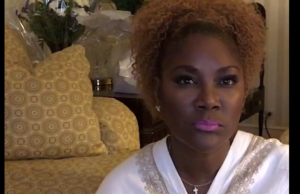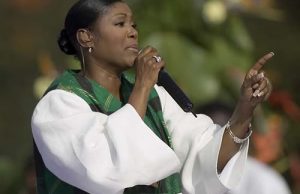***UPDATED***Call for Submissions: TFW Forum on Disabilities, Ableism, and Disability Studies
Forum Editors: Eddie Ndopu, Heather Laine Talley, and Monica J. Casper
At TFW, we aim to not only produce feminist content but to embody our feminism through our editorial process. As such, we engage in ongoing dialogue with many of our writers. We mentor unpublished (and published) contributors through processes of revision. And when we hear from our readers, we take your ideas and critiques seriously.
Yesterday, our CFP for the upcoming disabilities forum went live, and we heard back from many of you taking us to task for perpetuating two dynamics that we hoped to challenge with this very forum.
First, several readers suggested that our CFP excluded an understanding of the full range of disabilities, that we focused on “the body” as opposed to “the mental” or “the cognitive.” While our CFP does not (intentionally) identify particular disabilities as worthy of consideration, this critique speaks to an enduring problem within critical disability studies, and as such, it is perhaps necessary to say very explicitly that we are interested in pieces that document, theorize, question, and examine disabilities broadly defined. Whereas analyses of disabilities often focus on “function” and sometimes on chronic illness, our hope is to broaden the conversation to include mental health/illnesses and cognitive disabilities.
Secondly, we received emails remarking on the inaccessibility of the CFP itself. Given the sustained exclusion and economic vulnerability of those with disabilities, the academic language of our call was pointed to as yet another method of exclusion. Reduced access to formal higher education works to perpetuate a cycle of ableism. The unfortunate reality is that there’s a disjuncture between disability studies (and academia at large) and disability justice organizing. We honor that many communities on the frontlines of oppression regard the academy itself as a major site of violence, trauma, and ableism. While TFW seeks to blur the demarcation between activism and scholarship, it is also an ”academic-ish” publication. We are committed to making our forum widely accessible, and we also want to acknowledge and politicize the location from which we ourselves are located and form critical analysis.
Our revised CFP appears below with several additional topics. Thank you TFW readers for calling us out, for challenging us to do what we do better, and for understanding as we took a little time to collect our thoughts and respond to your concerns. One thing we’ve learned in doing this work is that justice and human flourishing depends on all of us taking a hard message to heart, reflecting on our part in perpetuating exclusion and suffering, and responding immediately with sincere appreciation and concrete actions.
****************************
Disability seems to be trending in academia these days. For example, a recent conference on “Cripistemologies” brought together disability studies scholars with folks who study gender and sexuality, focusing particularly on animals, chronic pain/injury, and trans* embodiment. And scholars who work in several other areas (e.g., transnational feminisms, globalization studies) have recently turned their critical attention to disability.
We are avid supporters and practitioners of interdisciplinarity and celebrate theory driven by (in)justice, but at the same time, we find ourselves curious about this “turn” to disability studies–a field that has been making significant contributions for quite some time now. What, we ask, is at stake for disabled people when “disability” is used as a heuristic for making sense of human-animal relations, for example? The appropriation of disability, disabled lives, and non-normative bodies for projects unrelated to disability justice demands a critical lens.
We thus conceived of this forum as a space for wrestling with the issues raised by academia’s rediscovery of disability and its (mis)appropriation for various intellectual projects. We ask: Why disability, and why now? What are the stakes, and for whom, in melding disability with various studies of “the other”? Is there something about disability that should make it “exempt” from use as a metaphor? And what of the established field of disability studies? How do new explorations of disability expand upon or constrain the praxis-centered disability studies project? How might the project of critical disability studies learn from disability activism and justice work?
In the service of challenging the more insidious effects of the “rediscovery” of disability, we also conceived of this forum as a “safe(r) space” for explorations of “disability” writ large. So this forum, we hope, will address a series of questions or provocations:
-
What does it mean to live as “disabled” in the 21st century? And how is this living complicated by geography, access to technology, class status, race, the invisibility of some disabilities (e.g., cognitive), etc.?
-
Disability as it relates to other lived identities–including race, gender, sexuality, age, geography, citizenship status, income/class status, and other embodied markers–is too regularly overlooked in conversations about intersectionality. Where are these absences especially conspicuous, and at what cost?
-
How can we talk about the triumvirate of race, class, and gender while attending to the ways these are embodied and experienced both “normatively” and “non-normatively?”
-
What does a feminist disability politic look like? What does it feel like to inhabit a space of “feminist disability”?
-
How does “disability” function as a monolithic category that obscures material realities of diverse embodiments and lived experiences?
-
What are the promises and the limits of crip feminism?
-
What strategies are community organizations and/or individual activists using to challenge ableism that seem particularly promising?
-
Whose voices are missing from the conversation? What issues, experiences, and definitions are missing from the conversation?
-
How does ableism operate in daily life and alongside misogyny, racism, nationalism, and queerphobia?
-
What is disability? What does it mean to be “disabled”?
We invite academics, writers, and activists to weigh in on any or all of these complicated issues. We welcome critical essays, creative nonfiction, interviews, reviews, op-eds, fiction, poetry, and visual art. Essays, reviews, and creative nonfiction should be no longer than 2,000 words and not already submitted elsewhere. Please email us at feministwire@gmail.com if you have questions about the length and/or format of creative works.
Submissions will be due by October 10, 2013. All work should be submitted to us through our online system, Submittable, accessed here. Please review our general submission guidelines before sending us your work. Also, please title the work and label the submission “Disability Forum.” Include a bio and headshot or other photo. The forum will run in late October through early November.




Pingback: Links: Friday, August 30th | Love in the Margins
Pingback: TFW Forum on Disabilities, Ableism, and Disability Studies ← Art Opportunities @festivals21
Pingback: *REVISED* Call for Submissions: TFW Forum on Disabilities, Ableism, and Disability Studies - The Feminist Wire | The Feminist Wire